A new collaboration between the Sydney Conservatorium of Music and the National Institute of Dramatic Art (NIDA) features the premiere of four short operas written by Master’s students. Shamistha de Soysa talks to the four composers about their works, which explore ideas around mothers and motherhood, and their views on opera as an art form.
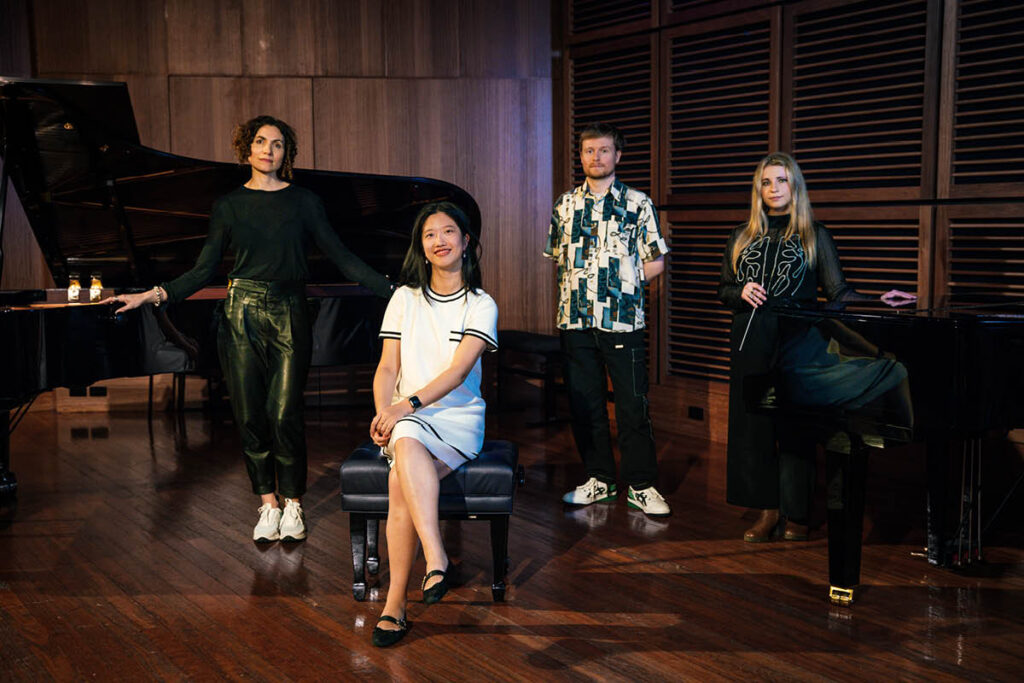
Murderers, blackmailers, enablers and the damaged. This is no list of criminals, but some of the tropes characterising the roles of women in opera. More specifically, the roles of mothers in opera. There’s the filicidal Medea and Norma, who comes close; the terrifying Queen of the Night and Herodias the conspirator; Cio-Cio-San and Angelica, who are victimised and abandoned; Azucena and Kostelnička, who are also guilty of killing children.
There are plenty of ‘good’ mothers in opera, but as an art form which has been created almost exclusively by European men for centuries, opera often portrays mothers as extreme characters burdened with the stereotypes of the ages.
A new co-production between the Sydney Conservatorium of Music (SCM) and the National Institute of Dramatic Art (NIDA) called Mother is exploring a dramatically different concept of motherhood through the premiere of four specially commissioned short operas written by their postgraduate students.
The composers – Oliver John Cameron, Aija Draguns, Jessica O’Donoghue and Hao Zhen – are undertaking a Master of Music (Composition) at the Sydney Conservatorium and have been selected for a special program called Words, Text, Voice, Music to develop new works including words and music. The operas are the major works in their dissertation portfolios. They have been paired respectively with librettists Xavier Hazard and Megan Rundle; Bianca Watkins; Rebecca Duke and Karina Young; and Lily Thomson – all students from NIDA’s Master of Fine Arts in Dramatic Writing.
Mother will be performed by Master’s students in voice and instrumentalists from the Sydney Conservatorium, while the creative teams include students undertaking various courses in design and production at NIDA.
The quartet of new, 20-minute pieces will introduce their audiences to fresh sounds and ideas. With dramaturgy by Dr Sally Blackwood, the productions are directed by Lindy Hume, a leading director of opera and festivals in Australia and around the world.
Hume’s recent productions include Idomeneo for Opera Australia, Theodora for Pinchgut Opera and Winterreise for Musica Viva Australia. Her leadership roles include Artistic Director of Tasmania’s Ten Days on the Island (2019–2023), Director of the Sydney Festival (2010–2012) and Director of the Perth International Arts Festival (2004–2007). She has also been Artistic Director of four Australian opera companies: West Australian Opera (1992–1996); OzOpera and Victorian Opera (both 1996–2001); and Opera Queensland (2012–2017). Currently, she is Creative Director of Crimson Rosella Creative Adventures, a new social and creative enterprise focusing on regional Australia.
A Fruitful Partnership
The relationship between the two training institutions began in 2021. David Berthold had joined NIDA as Artistic Director-in-Residence the previous year after concluding his tenure as Artistic Director of Brisbane Festival and suggested a collaboration. This led to a co-production of Britten’s A Midsummer Night’s Dream, directed by Kate Gaul, followed in 2022 by Mozart’s The Magic Flute, directed by Clemence Williams. Both were conducted by Associate Professor Stephen Mould, Senior Lecturer in Conducting, Opera Studies and Repetiteurship at the Sydney Conservatorium.
In 2023, they joined forces again to stage Elena Kats-Chernin’s reimagining of Monteverdi’s The Coronation of Poppea, directed by Berthold and conducted by Mould. Performed by the 16 Opera Performance Master’s students, with students from the Sydney Conservatorium making up the 20-strong orchestra, the design, set construction and stage management were undertaken by third-year NIDA students.
Building on this collaborative foundation, Berthold is excited about the potential outcomes of Mother.
“When we met to develop what the teams might write about, the composers and writers shared their interests and we decided on the ideas of ‘mother’ and ‘motherhood’ in [their] broadest meaning,” he says, discussing the creative journey.
“What it will achieve for opera is good contemporary storytelling,” he affirms. “The musical idioms these composers are working in are quite adventurous. Some are drawing on contemporary pop idioms and others are drawing on different cultural traditions. The target audience will be anyone interested in this kind of storytelling, new music and the future of opera – because that is something the composers are exploring.”
“From NIDA’s perspective, it has been exciting to give our Master’s writing students the opportunity to work in the operatic form, because it’s a novel experience for some of them. It’s a great chance to work on new material, which is rare in the operatic field. It’s also very exciting for them to be working with an artist of the calibre of Lindy Hume,” continues Berthold.
“The operas sit well together, but they can be performed independently. I can see them being produced by companies around the world or even within a festival context.”
The chamber-sized operas are rich in variety, offering different combinations of solo singers, with and without a chorus, and featuring ensembles of conventional and innovative instruments. They also challenge expectations with their content.
Oliver John Cameron’s opera M.TH.R has no chorus, but features a synthesiser with string quintet and electronic drums. Aija Draguns’ In Cosmic Utero is influenced by her Latvian heritage. She is the only composer to conduct her own piece, and her orchestration includes harp and chamber organ. Jessica O’Donoghue’s Menarche has five female leads, with two smaller vocal ensembles and a drum kit in the instrumental mix. Hao Zhen’s The Lullaby has a small chorus and features bass saxophone.
M.TH.R
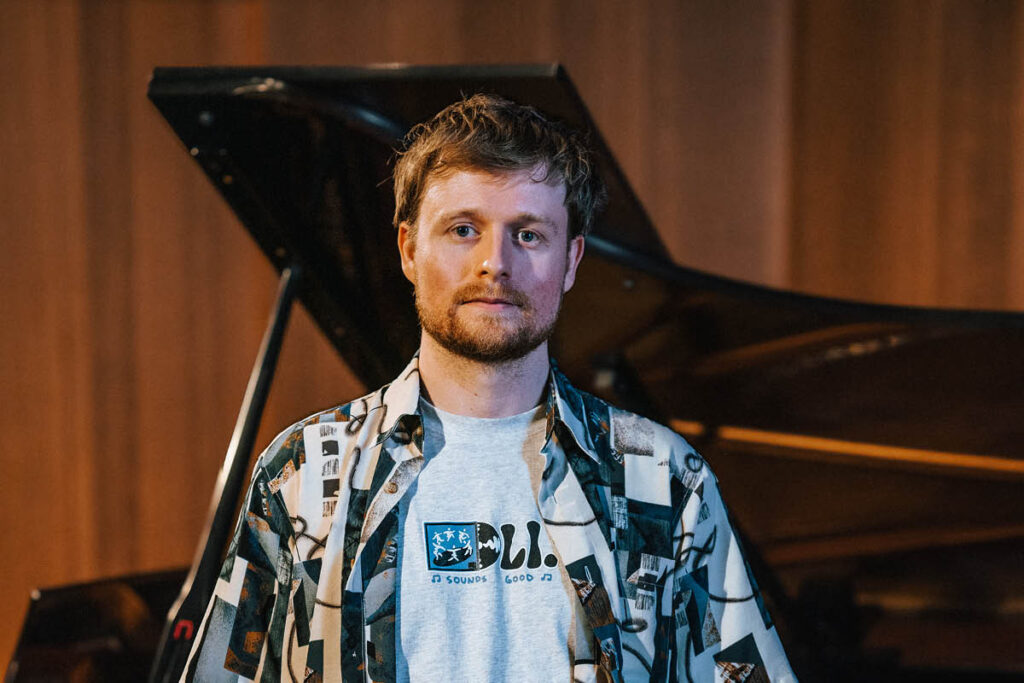
Cameron is an award-winning composer based in Sydney. Writing across several genres, he completed a Bachelor of Music (Composition) with Honours in 2015 at the SCM. In 2021, he won the Willgoss Choral Composition Prize with his work five lullabies for uncertain times. M.TH.R – which he has composed and co-written with librettists Xavier Hazard and Megan Rundle – is his first foray into writing opera, though he has already collaborated with Rundle on music theatre.
“The three of us intersected in wanting to create something very much influenced by pop icons like Madonna, Lady Gaga, Ru Paul and Björk,” he says, describing M.TH.R as being “a darkly comic piece leaning into camp”. His style is drawn from contemporary music theatre with a touch of Baroque pop influenced in its rhythmic ideas by Baroque music, but with pop harmonies.
M.TH.R takes us to the finale of a reality TV show. Competitors vie to impress M.TH.R, a pop superstar, who will choose the winner from two finalists selected by her adoring fan base, the Kindercorps. The opera addresses themes including cult celebrity, fandom, identity, staying true to oneself and the idea of the ‘chosen mother’ – a person on whom the identity has been projected by a vulnerable individual who has lost their birth mother. The opera explores the idea of chosen family, as well as biological family.
“A true parent doesn’t need to have a biological connection; it’s a very interesting concept to explore,” says Cameron. There are also hints of a deeper, darker connection between M.TH.R and Nova, the eventual winner.
Running through the synopsis is an element of gender fluidity. “We talked a lot about whether to explore the implications of gender and we’re taking a neutral approach,” he says. “Our wonderful tenor Wesley Yu, who is singing the role of Nova, is also open to a neutral or androgynous representation. The role has shifted in the writing process from being non-gender to being a ‘she’ and then a ‘he’. It’s not a role that is projecting gender in a stereotypical way. The lines are blurred and, again, it’s more about the title than the biological expression.”
Cameron is aiming his opera at a broad age range. Although the libretto contains some millennial terminology, he believes that the setting of a reality TV show is familiar enough to appeal to a wide swathe of people.
A violinist and violist, Cameron speaks in rich bass tones and loves singing. Growing up, he was curiously resistant to pop culture, focusing instead on classical music, but finally embraced pop music more recently.
“I love how unapologetic pop music is,” he says, “and now as a composer, I’m increasingly drawn to contemporary pop. I’m not devoted to any one style but let all the influences come together in what I create. Opera is a good space for that.”
Cameron is ambitious for his opera. “It has the potential to become something larger and I would like to develop it further,” he confides. “I have a great interest in writing on a large scale. That is something I definitely want to do.”
In Cosmic Utero

Draguns already has one opera to her name, a children’s piece called Max and Moritz, based on a novel by the German writer Wilhelm Busch, which was premiered by Musgrove Opera at the Sydney Opera House in 2022.
Born in Australia to Latvian parents, Draguns has drawn on Latvian folklore and animation from the 1980s and 1990s for inspiration. She describes her style as “classical contemporary”, which she believes will appeal to audiences who have never seen opera before but who seek to explore classical music.
“It’s a whimsical drama featuring Sun – inspired by two mythological deities, Māra (mother earth) and Saule (guardian of the sky time) – Moon, Star Baby and trees in a fantasy which draws people in both visually and musically,” she says, warning that it then goes into an intense birth scene with dark and dramatic music.
“The darkness is a juxtaposition between loneliness, loss and grief. It’s what you see in those Latvian cartoons which are very colourful and engaging, but also unsettling.”
Draguns started her musical life early, singing and playing the piano and saxophone. Drawn to composition in her high school years, she was in her second undergraduate conducting class at the SCM when she realised that conducting was her first love, combined with writing for choirs, solo singers and now opera. She recently took up a post teaching music theory at the University of Sydney. Her Latvian heritage is a strong theme in her work, and her honours thesis focused on the Latvian national identity in her music.
“This project is particularly exciting because I will be conducting,” she says. “When I go to rehearsal as a composer, I try to fix holes and to see what is and isn’t working, what I can add and what needs to be taken away. As a conductor, I’m trying to hold the music together. It’s a tough balancing act, but combining the roles does quicken things up. If I was working with a different conductor, as a composer I’d be going back and forth trying different things, whereas if I am doing both jobs, it is more integrated and efficient.”
Draguns also points to the irreplaceable value of the collaboration between a living composer and the singers who will perform the work. Yet, she is deeply mindful of the rich heritage of the operatic art form.
“As much as I love traditional opera, it is so important for the opera school students to work with a composer who is in the room with them. If something is difficult or out of their range, we change it on the spot. That is a luxury not available with established operas. It is a creative collaboration where it is not just the composer who creates the music, but the performer as well. I’ve worked with the [performers] to craft this piece to suit their voices, and that collaboration is something that we should implement more.”
Menarche
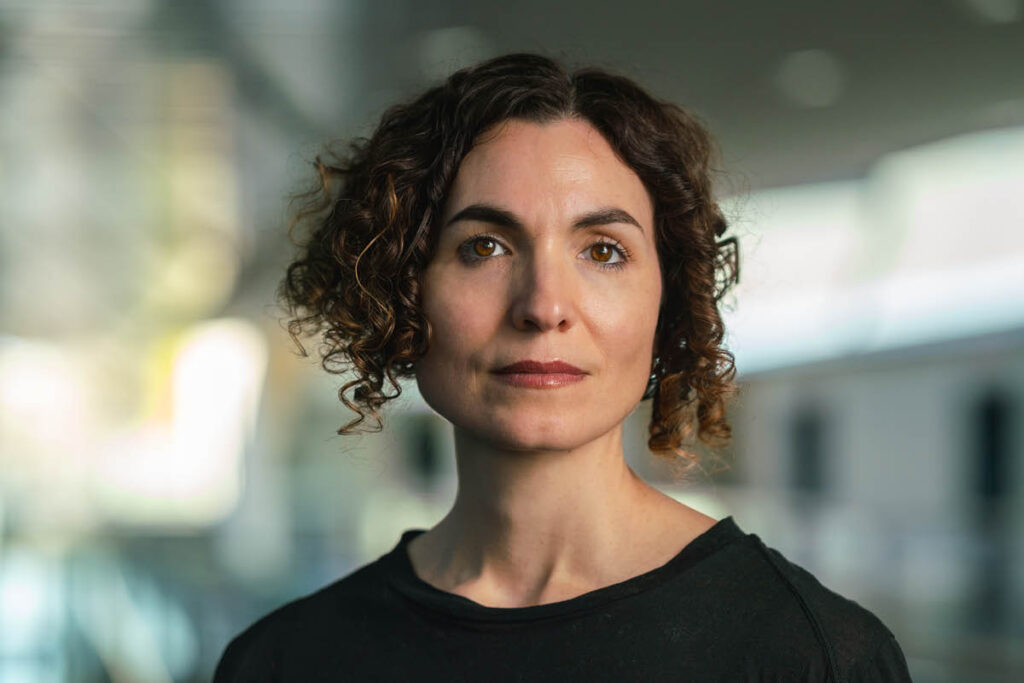
An award-winning mezzo-soprano, O’Donoghue graduated with a Bachelor of Music from the University of Sydney and a Diploma of Opera from the Victorian College of the Arts. She was a young Artist with Opera Queensland and is Co-Artistic Director of The Song Company. She has performed regularly with Sydney Chamber Opera, recently taking on the roles of Shamhat, Uta-Napishti and Scorpion in the company’s premiere of Jack Symonds’ Gilgamesh, co-produced with Opera Australia. (Incidentally, Symonds created Gilgamesh for his PhD at the Sydney Conservatorium.)
Menarche marks O’Donoghue’s debut in writing opera. Passionate about the art form and its power to tell stories, she was frustrated by the state of the genre. “I felt that it was about trotting out these out-of-date, irrelevant and quite damaging narratives, which I didn’t feel great about bringing to life on stage. It wasn’t fulfilling and I wasn’t the artist I thought I’d be.”
Walking away from opera, she returned to her roots in pop, jazz and cabaret, until she met a cohort from Sydney Chamber Opera which, she felt, was presenting opera in a unique, contemporary form that reignited her passion. She has been performing with SCO for over a decade whilst nurturing a growing desire to write her own operas to shape the art form by contributing her own narratives.
“Opera isn’t a sum of ancient works,” she insists. “It can evolve as a living, breathing art form.” Like Draguns, O’Donoghue believes that older works should not be lost, but their legacy honoured whilst the art form continues to grow and generate new masterpieces.
Menarche is set over three different points in time: ‘early,’ ‘retro’ and ‘current.’ Its cyclical theme reflects the title of the opera, which refers to the onset of menstruation in women. The opera follows young women as they experience this transformative time in their lives, unlock the wisdom of their foremothers and emerge stronger, more enlightened and more empowered.
For O’Donoghue, writing Menarche has been a cathartic as well as creative process. She began to reflect on this milestone as her daughter approached menarche, recalling her own adolescence, appraising the negative experiences and then shedding them so that she could pass on a positive story that celebrated womanhood and her body.
“I revisited my own journey . . . and all the horror stories [showing] how women have been treated throughout the ages. There is a lot of shame attached to what their bodies are going through – a kind of cursing or exclusion of women, making them feel dirty for something that is so beautiful and profound.”
“I wanted a work that would be a fresh, new narrative and give the next generation of women a positive spin on the female journey rather than a negative spin. Let’s lift each other up and love ourselves and love women for who they are and what they do in this world, which is give birth and create life within their own bodies.”
There are two other dimensions to O’Donoghue’s mission, which look firmly to the next generation of audiences and performers. The first is to engage a younger audience that will support the art form into the future. The other is to acquaint a new generation of singers with new music and train them to acquire the skills required to perform contemporary works.
“It is critical that these be introduced into our institutions, not just in musical style but in narrative ability and social relevance. We need stories that are current, that audiences can relate to because they are created by living people. What the performer needs to do is to embody and perform these narratives in a multidisciplinary way. This means a better handle on technique because you need access to more sounds and colours, but you also need excellent singing and performing skills to bring your story to life.”
The Lullaby
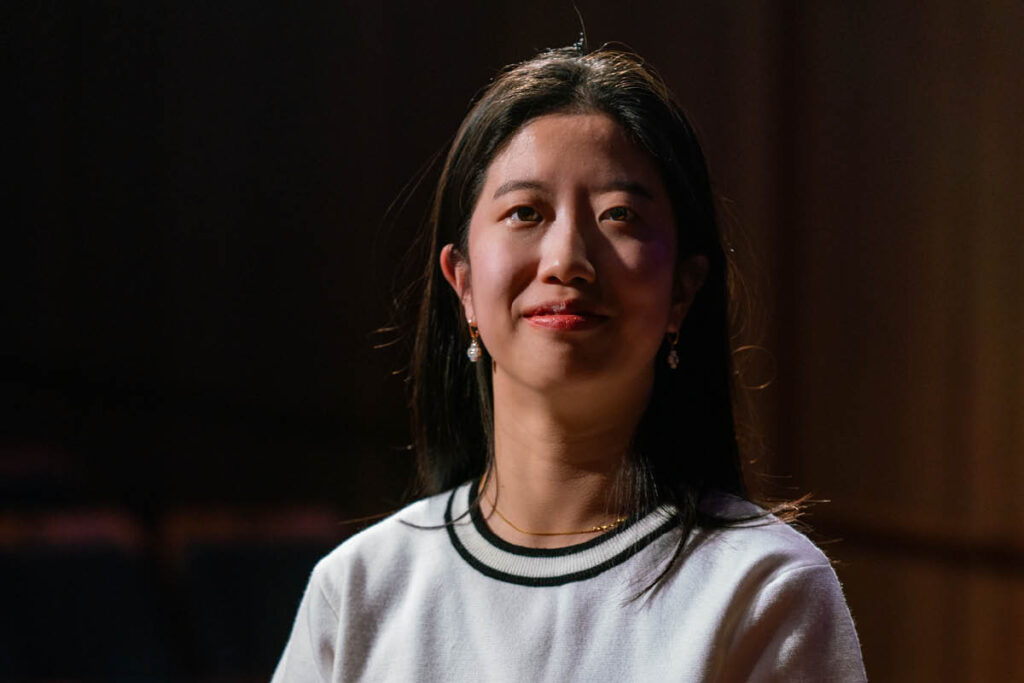
“Every day I wake, I know I’m going to write music and that makes me so happy,” bubbles Zhen, who composed The Lullaby. Born in China, she travelled to Nashville, Tennessee for undergraduate studies, which included majors in piano and film. She moved to Sydney for postgraduate study two years ago. Another opera debutante, she started to write music aged four. Her compositions to date have been in chamber music and song cycles, for which she has set ancient Chinese poems.
She hopes to see opera bloom as it becomes relevant to “anything and everyone,” adding, “It doesn’t have to be three hours long; it can be something that encapsulates moments in life. In this case, it’s a situation drawing the audience into the world of mothers.”
For inspiration, Zhen and her librettist Lily Thomson visited Sydney’s Botanic Gardens. “Watching the children play, we agreed on the genre of a fairy tale, because anything can happen in a fairy tale. Also, there is a dark side to fairy tales, which made it the perfect medium for expressing this story.”
In Zhen’s opera, motherhood is entwined with the idea of snakes. Her great-grandfather in China was a healer of snake bites, chanting and drawing poison from the bite.
“The snake represents the mother’s dark wishes,” Zhen elaborates. “She has a chaotic struggle expressing her emotions. What makes the opera is that music helps to close that detachment between the mother’s vulnerability and the words that she cannot express. It is a wonderful way of combining non-verbal expression with singing, which is so powerful.”
The design team is creating the snakes with plastic skins, which rustle when they move. “I’m quite excited by this,” says Zhen. “It’s very tactile and you can touch the violence in the environment.”
The Lullaby is for everyone, says Zhen. “We have been thinking about ‘mother’ as loving and caring, but there are two sides to this. Our opera starts off with the mother in a very shadowy place, singing sadly. It is a source of anguish to [her] that there is something she is unable or unwilling to confront. We also liked the themes of repression of guilt and unacknowledged desires, which are central to our exploration of the complexities of motherhood.”
A Future for Opera?
The composers are unanimous that working with Hume – a first for all of them – has been an exceptional learning and creative process. In the hive of the opera workshop to which Hume brings abundant experience, the composers report that she questions, challenges, detects plot holes and provides ideas on structure and framework. Zhen is especially inspired and pays Hume the ultimate compliment when she says, “She is someone I want to be one day. She did some magical things in our workshop, like physical movements that immediately changed the way the singers sang. From her, I learned a lot about physicality, which can make such a huge difference to the music.”
Draguns says that Hume encouraged her to think more about her ideas and decisions surrounding the characters, creating more purpose in the drama. For O’Donoghue, Hume has been critical to how these operas have evolved, ensuring that the end product succeeds as a fully staged show.
The desire for change in opera is quickening. In August, composer Sally Whitwell won the 2024 Art Music Award for Work of the Year: Dramatic for Margaret and the Grey Mare, a “meta-opera” highlighting “colonialist racism and unquestioned misogyny in the canonical repertoire”.
In 2024, Opera Australia has presented five contemporary operas: Brett Dean’s Hamlet, Missy Mazzoli’s Breaking the Waves, Jonathan Mills’ Eucalyptus, Jack Symonds’ Gilgamesh and Joseph Twist’s Watershed – all living composers.
Draguns is confident about the future of opera. “Opera’s not going to die. It’s going to keep moving with new music created,” she says. “There is a misconception that contemporary composers write whacky, unapproachable material, but I think Mother will show four different ways that opera can be produced. And, regardless of style, it shows that opera is evolving and that it does have a future.”
Mother plays at the Parade Theatre, NIDA, Sydney, 28 October – 2 November.



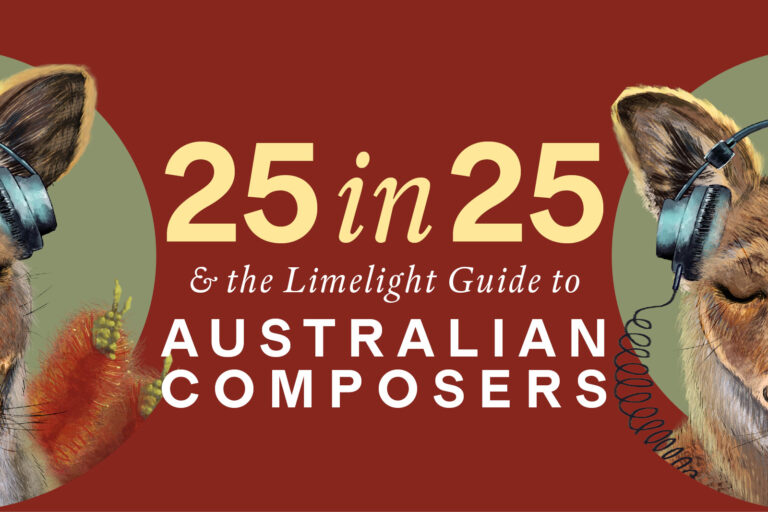


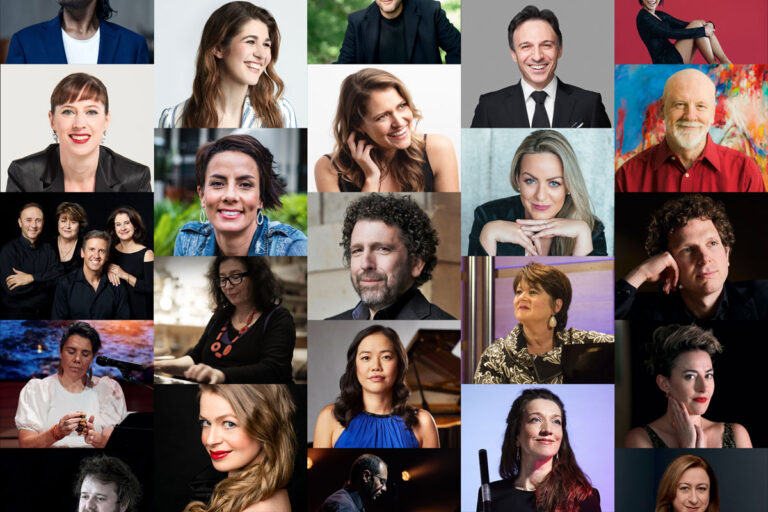
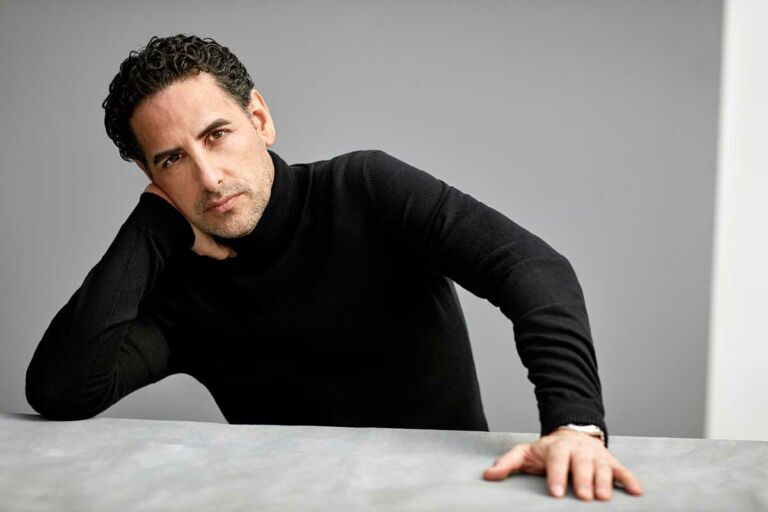



Comments
Log in to start the conversation.